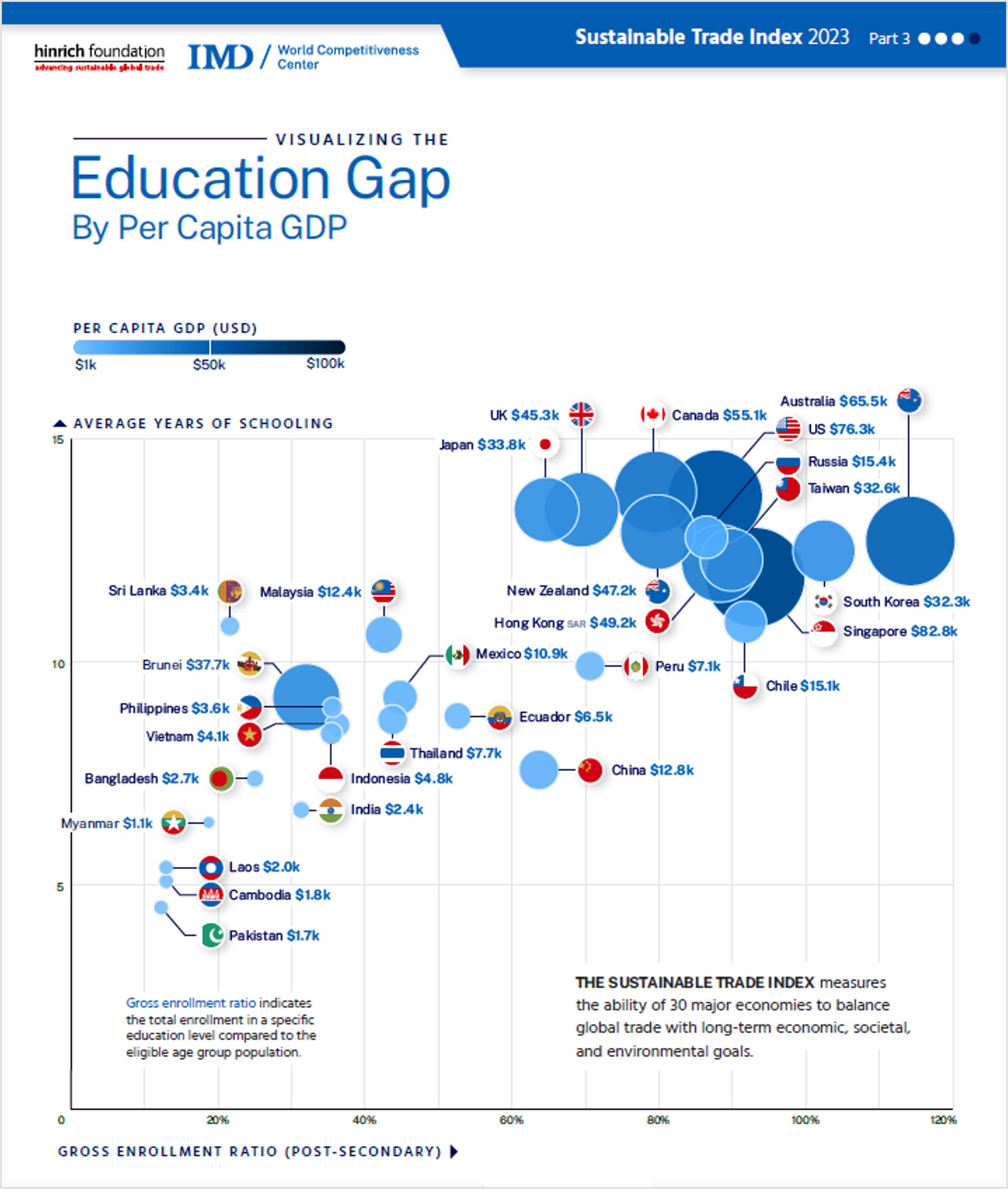Published 12 December 2023
Educational attainment is becoming increasingly vital for global innovation and economic competitiveness. We asked Visual Capitalist to illustrate their correlation, based on data collated in the 2023 Hinrich-IMD Sustainable Trade Index, which measures the ability of 30 economies to balance global trade with long-term economic, societal, and environmental goals.
(Text by Mekhla Jha)
Education helps to reduce social inequalities and empowers people to live more healthy and sustainable lives. Education is also crucial to fostering tolerance between communities and contributes to more peaceful societies. It is an important indicator within the societal pillar of the Hinrich-IMD Sustainable Trade Index, which among 71 indicators measures social factors that contribute to an economy’s human capital.
According to national education targets compiled by the United Nations Educational, Scientific, and Cultural Organization (UNESCO), the percentage of students attaining basic reading skills by the end of primary school is projected to rise from 51% in 2015 to 67% by 2030. However, an estimated 300 million children and young people worldwide will still lack basic numeracy and literacy skills by 2030. About 40% of countries have not achieved gender parity in primary education. These disadvantages in education also translate into a lack of access to skills and limited opportunities in the labor market for young women.
Economic constraints, coupled with issues of learning outcomes and dropout rates, persist in marginalized areas, underscoring the need for continued global commitment to ensuring inclusive and equitable education for all. Low levels of information and communications technology (ICT) skills are also a major barrier to achieving universal education.
Recognizing the importance of educational attainment for sustainable development and growth, the Hinrich-IMD Sustainable Trade Index includes this indicator to measure an economy’s long-term ability to participate sustainably in global trade.
This infographic by Visual Capitalist illustrates the disparity in access to higher education between developed and developing countries, highlighting its importance for global competition and innovation. As shown in this illustration, the third part of a series that will showcase the findings of the 2023 Sustainable Trade Index, the US tops the chart in educational attainment. Australia and the UK closely follow behind the US and Laos, Cambodia, and Papua New Guinea sit at the bottom of the rankings for this indicator.
The index includes other societal indicators such as income equality, gender parity, and labor standards. Educational attainment is a combination of sub-indicators such as mean years of schooling and tertiary enrollment.
© The Hinrich Foundation. See our website Terms and conditions for our copyright and reprint policy. All statements of fact and the views, conclusions and recommendations expressed in this publication are the sole responsibility of the author(s).







